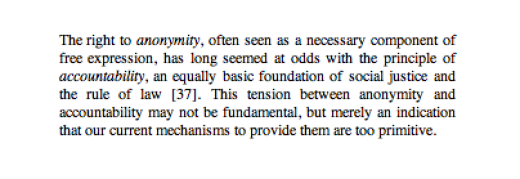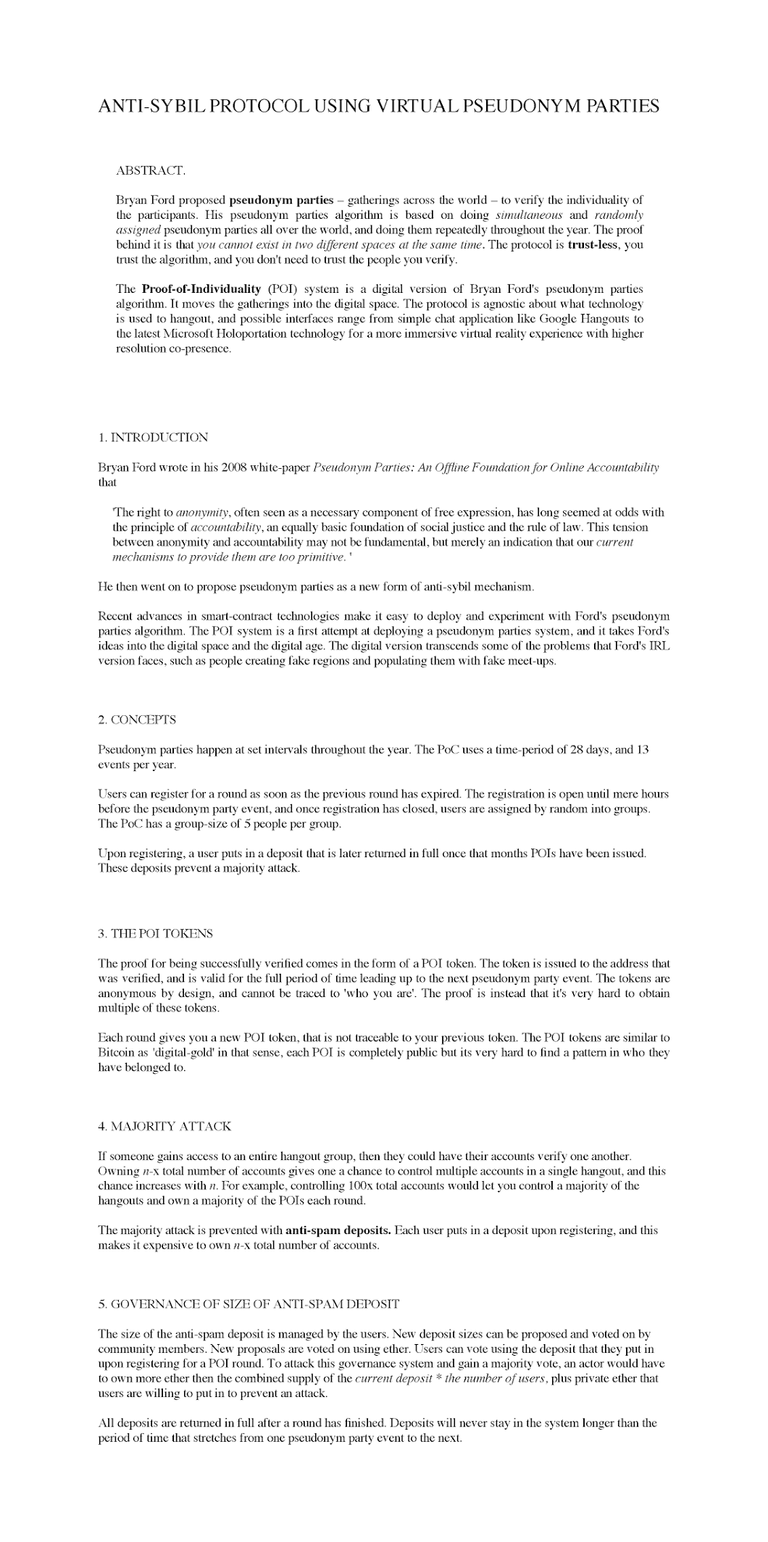http://ethereum-alarm-clock.com to upgrade to time-based scheduling. The alarm service currently only doesRe-blogged from http://the-blockchain.com where I published this in april 2016. The project is on hold, waiting for block.number based scheduling. Time-based alarm calls are estimated to be available later this fall.
This post has some slight improvements from the one on the-blockchain.com. I've included the whitepaper, and also the newest UI concept which is seen here --->

Blockchain Proof-of-Individuality – Anti-Sybil Protocol using virtual Pseudonym Parties
Pseudonym parties are based on the fact that you cannot be in two places at once. Global pseudonym party events happen in synchrony, simultaneously all over the world, and are scheduled continuously throughout the year. The earliest reference for the protocol that I’ve found is from 2007/2008, https://pdos.csail.mit.edu/papers/accountable-pseudonyms-socialnets08.pdf
The POI protocol takes the pseudonym party concept into the digital space, using video chats instead of IRL meetups. The underlying proof is of the same kind, that people cannot be in two embodiments at once.
The protocol is agnostic about how people verify one another in the hangouts. It’s anonymous in the sense that people could even wear Guy Fawkes masks and it would still work, as they could use arm-motion mimicry to verify joint-attention. The POI tokens themselves are completely a-personal, and not traceable over time. Each new POI token you receive is not traceable to your previous one. It’s an anonymous proof-of-individuality that gives you complete sovereignty over your digital self.
The Proof-of-Individuality (POI) protocol is an anti-sybil protocol based on Bryan Ford’s pseudonym parties (2008)

Pseudonym Parties: An Offline Foundation for Online Accountable Pseudonyms
Global meet-up events happen simultaneously across the world, continuously throughout the year. The proof is based on the fact that you cannot be in two places at once.
Bryan Ford wrote that the tension between anonymity and accountability may not be fundamental, but merely an indication that our current mechanisms to provide them are too primitive. He also wrote that pseudonym parties appear to be the only proposed solution that can address both strong accountability and privacy at the same time.
The Proof-of-Individuality (POI) project takes Bryan Ford’s vision into the digital space, and lets people meet up using video hangouts. The proof is based on the fact that you can’t be in joint attention with more than one hangout at a time, without anyone noticing it.

An interesting future for the protocol would be to use Mirosoft’s new holoportation technology for the hangouts.
Once verified, you receive an anonymous token that is valid for one month.You have to get a new token the next month, and your new token will not be traceable to your previous token, making the tokens very anonymous.POIs are indexed on the block-chain and searchable, and you could build more complex IDs on top of it. A POI in itself is anonymous and controlled by the owner who has the corresponding private key. You can link your POIs together, at the cost of decreased anonymity.
Once verified, you receive an anonymous token that is valid for one month.

You have to get a new token the next month, and your new token will not be traceable to your previous token, making the tokens very anonymous.
POIs are indexed on the block-chain and searchable, and you could build more complex IDs on top of it. A POI in itself is anonymous and controlled by the owner who has the corresponding private key. You can link your POIs together, at the cost of decreased anonymity.

This is a short whitepaper for the project,

Join the POI project on Slack, http://poiproject.herokuapp.com
And find it on Github here,
Excited about this project!
this is really cool guys.